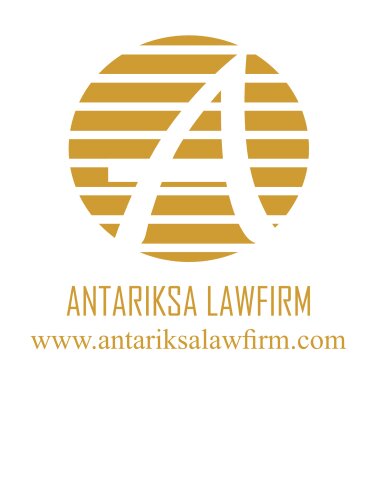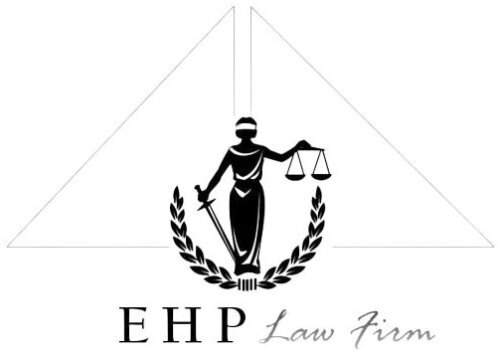Best Corporate Governance Lawyers in Indonesia
Share your needs with us, get contacted by law firms.
Free. Takes 2 min.
Or refine your search by selecting a city:
List of the best lawyers in Indonesia
About Corporate Governance Law in Indonesia
Corporate governance in Indonesia refers to the systems, principles, and processes by which companies are directed and controlled. It is essential for ensuring transparency, accountability, fairness, and responsibility in the management of Indonesian corporations. The overall aim is to protect the interests of stakeholders such as shareholders, employees, creditors, suppliers, government, and the community. In Indonesia, corporate governance laws have evolved in response to both global standards and local business culture, with significant inspiration from international best practices while addressing unique domestic challenges. These laws regulate how businesses are run, promote ethical practices, and help prevent corporate misconduct.
Why You May Need a Lawyer
Corporate governance legal matters can be complex and multi-layered, often involving detailed regulations, compliance obligations, and significant legal and financial risks. You may need a lawyer specializing in corporate governance for situations such as:
- Setting up a new business or structuring your company in accordance with Indonesian law
- Ensuring compliance with the Corporate Governance Code and other regulatory requirements
- Drafting or reviewing Articles of Association, bylaws, and other governance documents
- Advising on the roles and responsibilities of directors and commissioners
- Handling shareholder disputes or issues related to shareholders' rights
- Managing risk of conflicts of interest and related-party transactions
- Navigating mergers, acquisitions, or liquidation procedures
- Preparing for and conducting annual general meetings (AGM)
- Addressing government investigations or sanctions related to corporate mismanagement
Local Laws Overview
The key legal framework for corporate governance in Indonesia encompasses several laws and regulations:
- Company Law (Law No. 40 of 2007 on Limited Liability Companies): Sets the rules for company formation, management structure, and shareholder rights.
- Financial Services Authority (OJK) Regulations: Particularly relevant to publicly listed companies, these include detailed governance requirements such as board composition, audit committees, and reporting obligations.
- Indonesian Corporate Governance Code: Non-binding but widely referred standard providing best practices for transparency, responsibility, and accountability in company management.
- Investment Law (Law No. 25 of 2007): Governs foreign and local investments, with implications on corporate structure and governance mechanisms.
- Capital Market Law (Law No. 8 of 1995): Applies to publicly listed companies, emphasizing disclosure and fair treatment of investors.
- Ministry of Law and Human Rights Regulations: Govern company registration, annual reporting, and other procedural matters.
Frequently Asked Questions
What is the role of the Board of Directors and Board of Commissioners in Indonesia?
The Board of Directors manages the company’s operations and makes daily business decisions. The Board of Commissioners supervises and advises the Board of Directors and ensures compliance with laws and the company's Articles of Association.
Are Indonesian companies required to have independent commissioners?
Yes, publicly listed companies must have a certain number of independent commissioners, as mandated by OJK regulations, to enhance objectivity and oversight.
What are the main disclosure requirements for Indonesian companies?
Publicly listed companies must disclose financial reports, material information, conflict-of-interest transactions, and corporate actions regularly to shareholders and regulators.
How are shareholder rights protected under Indonesian law?
Shareholders have rights to attend AGMs, vote on major decisions, receive dividends, and request company information. Minority shareholders have additional protections under Company Law.
What constitutes a conflict of interest, and how is it managed?
Conflicts of interest arise when company officials have personal interests affecting company decisions. Indonesian law requires disclosure and, in some cases, approval from other board members or shareholders.
How can foreign investors participate in Indonesian companies?
Foreign investors may form a limited liability company (PT PMA), subject to certain business sector restrictions and applicable investment regulations. All foreign investments must be registered and approved.
Are annual general meetings (AGMs) mandatory in Indonesia?
Yes, all limited liability companies must hold an AGM at least once a year to approve financial statements and make major company decisions.
What are the penalties for non-compliance with corporate governance regulations?
Penalties can include fines, warnings, restrictions on business activities, prosecution of directors or commissioners, and delisting for publicly listed companies.
Can governance documents such as Articles of Association be amended?
Yes, they can be amended, but any changes must follow formal procedures set out in Company Law and should be registered with the Ministry of Law and Human Rights.
What is the role of the Financial Services Authority (OJK) in corporate governance?
OJK supervises and enforces compliance among financial institutions and publicly listed companies, issues governance-related regulations, and ensures investor protection.
Additional Resources
For further information, consider these key resources and organizations:
- Financial Services Authority (OJK) - Regulates and supervises financial and public companies in Indonesia
- Ministry of Law and Human Rights - Responsible for company registration and legal compliance
- Indonesian Institute for Corporate Directorship (IICD) - Provides training and resources for best practices
- Indonesia Stock Exchange (IDX) - Offers guidance for listed companies on compliance and disclosure
- Indonesian Chamber of Commerce and Industry (KADIN) - Supports business stakeholders with legal updates
Next Steps
If you are facing corporate governance issues or require guidance, here’s how to proceed:
- Assess your company’s current governance practices and identify specific concerns or needs
- Gather all relevant company documents such as Articles of Association, shareholders’ agreements, and board minutes
- Consult with a qualified Indonesian corporate or business law attorney to discuss your situation
- Be prepared to provide detailed information and ask about potential risks, compliance obligations, and recommended actions
- Stay updated with changes in Indonesian regulations and consider regular corporate governance audits
Lawzana helps you find the best lawyers and law firms in Indonesia through a curated and pre-screened list of qualified legal professionals. Our platform offers rankings and detailed profiles of attorneys and law firms, allowing you to compare based on practice areas, including Corporate Governance, experience, and client feedback.
Each profile includes a description of the firm's areas of practice, client reviews, team members and partners, year of establishment, spoken languages, office locations, contact information, social media presence, and any published articles or resources. Most firms on our platform speak English and are experienced in both local and international legal matters.
Get a quote from top-rated law firms in Indonesia — quickly, securely, and without unnecessary hassle.
Disclaimer:
The information provided on this page is for general informational purposes only and does not constitute legal advice. While we strive to ensure the accuracy and relevance of the content, legal information may change over time, and interpretations of the law can vary. You should always consult with a qualified legal professional for advice specific to your situation.
We disclaim all liability for actions taken or not taken based on the content of this page. If you believe any information is incorrect or outdated, please contact us, and we will review and update it where appropriate.
Browse corporate governance law firms by city in Indonesia
Refine your search by selecting a city.
















